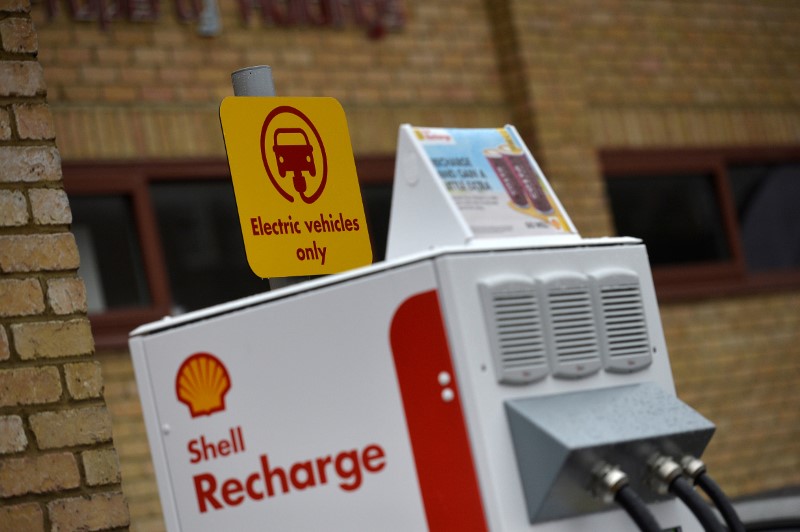Trump meets Zelenskiy, says Putin wants war to end, mulls trilateral talks
* Years of spills contaminated land, groundwater
* Nigerian communities say their lives, health suffered
* Shell owed duty of care, Ogale and Bille communities say
* Case tests accountability of multinationals
(Adds detail)
By Julia Payne and Kirstin Ridley
LONDON, Feb 12 (Reuters) - The UK Supreme Court on Friday
allowed a group of 42,500 Nigerian farmers and fishermen to sue
Royal Dutch Shell (RDS) RDSa.L in English courts after years
of oil spills in the Niger Delta contaminated land and
groundwater.
Senior judges said there was an arguable case that
UK-domiciled Shell, one of the world's biggest energy companies,
is responsible, in the latest test of whether multinationals can
be held to account for the acts of overseas subsidiaries.
Represented by law firm Leigh Day, the group of Nigerians
have argued that the parent company Shell owed them a duty of
care because it either had significant control of, and was
responsible for, its subsidiary SPDC. Shell countered that the
court had no jurisdiction to try the claims.
“(The ruling) also represents a watershed moment in the
accountability of multinational companies. Increasingly
impoverished communities are seeking to hold powerful corporate
actors to account and this judgment will significantly increase
their ability to do so," Daniel Leader, partner at Leigh Day,
said.
“UK common law is also used in countries like Canada,
Australia and New Zealand so this is a very helpful precedent.”
The decision comes almost two years after a seminal ruling
by the Supreme Court in a case involving mining firm Vedanta.
The judgment allowed nearly 2,000 Zambian villagers to sue
Vedanta in England for alleged pollution in Africa.
That move was seen as a victory for rural communities
seeking to hold parent companies accountable for environmental
disasters. Vedanta ultimately settled out of court in January.
Nigeria's Ogale and Bille communities allege their lives and
health have suffered because repeated oil spills have
contaminated the land, swamps, groundwater and waterways and
that there has been no adequate cleaning or remediation.
SPDC is the operator of oil pipelines in a joint venture
between the Nigerian National Petroleum Corporation which holds
a 55% stake, Shell which holds 30%, France's Total TOTF.PA
with 10%, Italy's Eni ENI.MI with 5%.
A Shell spokesman said the decision was disappointing.
"Regardless of the cause of a spill, SPDC cleans up and
remediates. It also works hard to prevent these sabotage spills,
by using technology, increasing surveillance and by promoting
alternative livelihoods for those who might damage pipes and
equipment,” Shell said.
Shell has blamed sabotage for oil spills. It said in its
annual report published last March that SPDC, which produces
around 1 million barrels of oil per day, saw crude oil spills
caused by theft or pipeline sabotage surge by 41% in 2019.
Shell CEO Ben van Beurden said last week that the firm would
take "another hard look at its onshore oil operations" in the
west African country. The ruling is the second judgement against Shell this year
regarding claims against its Nigerian operations. In a landmark
Dutch ruling two weeks ago, an appeals court held Shell
responsible for multiple oil pipeline leaks in the Niger Delta
and ordered it to pay unspecified damages to farmers, in a
victory for environmentalists. Leigh Day said that the amount of compensation sought would
be quantified as the case enters the trial stage. Shell could
however try to settle the matter out of court.
In 2015, Shell agreed to pay out 55 million pounds ($83.4
million) to the Bodo community in Nigeria in compensation for
two oil spills, which was the largest ever out-of-court
settlement relating to Nigerian oil spills.
